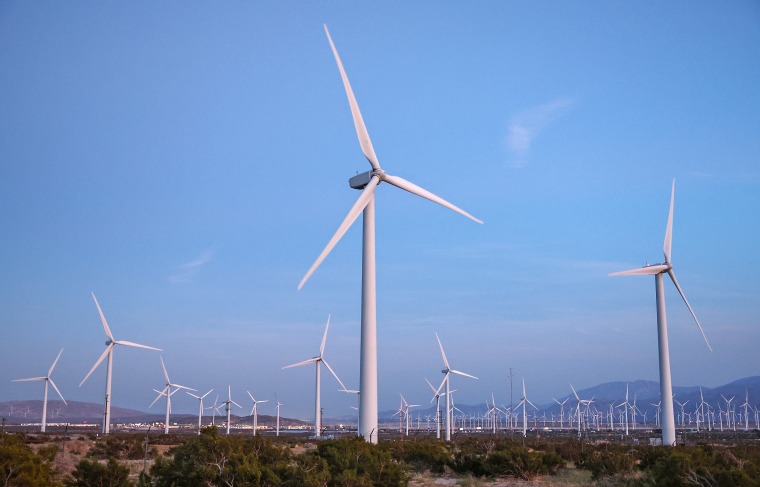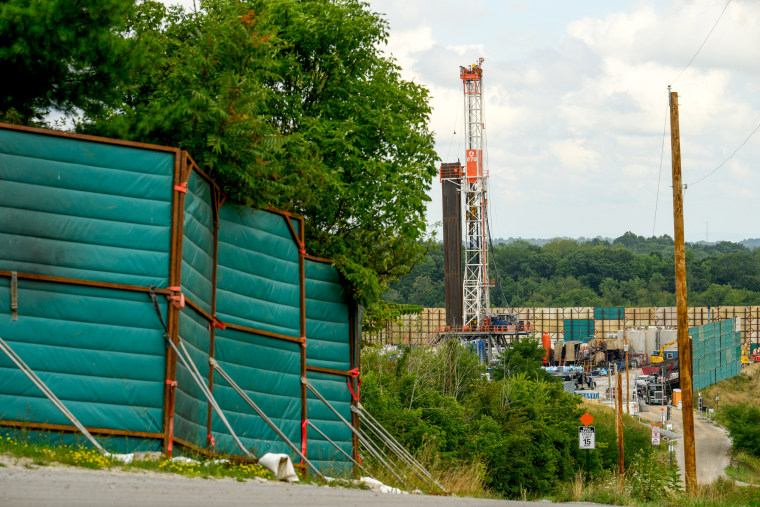“During election years, we frequently see promises to increase energy supply in order to decrease costs to consumers,” Scott Segal, a partner at the lobbying firm Bracewell, whose clients include major energy firms, said in an email. But he cautioned that “while increased domestic production can be a hedge, it’s not likely to have much near-term impact at the pump.”
Already, the U.S. is producing more crude oil than any country in history, surpassing both Russia and Saudi Arabia every year since 2018, federal data show. Domestic production hit a record 12.9 million barrels a day, on average, last year.
The Biden-Harris administration has sought to accelerate the green transition on one hand while blunting costs for consumers on the other. In addition to haranguing oil companies to pump more and charge less under threat of higher taxes, President Joe Biden also executed a lucrative oil trade in 2022 and 2023. He sold off 180 million barrels from the U.S. strategic reserve to stabilize surging costs, then replaced about a fifth of that the following year once global prices had come down, benefiting consumers while reaping a profit for the government.
The White House has also ramped up permitting for oil and gas exploration (though trade groups say the practical effect is mixed), and industry profits have swelled.
“President Biden has been, actually, surprisingly more supportive of U.S. oil production and global production that we wouldn’t have anticipated when he came into power four years ago,” Croft, from RBC Capital Markets, said.

Trump assures voters he would go further. He is attacking Harris for reversing her earlier opposition to hydraulic fracking, which extracts natural gas from shale-rock formations in a process environmental groups decry for links to pollution and health impacts. And he vows to accelerate nuclear power, favoring it over other alternatives like wind farms, which he has falsely accused of “driving whales I think a little batty.”
The former president’s campaign referred comments on energy policy to David Bernhardt, who served as interior secretary in the Trump administration and said he’s “very confident” that Trump “can move very quickly” to lower prices if re-elected.
“The president can expand access to various areas of development,” said Bernhardt, who is currently senior counsel at the law firm Brownstein Hyatt Farber Shreck. “He can increase the number of lease sales. He can do a great deal to expedite the processing of applications with permits to drill, which have been significantly delayed over time.”
Experts warn that pushing prices down too far could backfire.
“One of the factors that has limited growth of U.S. production has been the desire of CEOs and shareholders not to have so much oil on the market that it lowers the price of oil” enough to put producers in the red, Croft said.
She added that “this has been the real question” about fracking: “There has been a number of efficiencies in the sector that have allowed shale to produce at high rates, but at a certain point, when oil drops below a certain level, it becomes unprofitable to drill.”

There are early signs of a potential revival in nuclear power, but only two new reactors have come online nationwide in almost 30 years. While Segal said next-generation small modular reactors “are a promising technology,” ramping up on those “from a standing start seems to be a long shot in reducing electricity prices in a 12-24 month time frame.”
Consumer advocates say the government already has means to reduce household energy bills that could be strengthened to deliver more relief.
House Republicans shaved $2 billion last fall from the federal Low-Income Home Energy Assistance Program (LIHEAP), noted Mark Wolfe, who directs the national association of state officials who distribute that aid. “He’s saying, ‘Look, your energy costs are high.’ No one disagrees,” Wolfe said of Trump’s comments, but “there’s no way” drilling alone will solve the problem.
LIHEAP, which subsidizes utility bills and home weatherization for about 7 million people, has struggled to meet demand as increasingly extreme, unpredictable weather drives up heating and cooling costs. Americans are already behind on their utility bills by an estimated $17.4 billion as of August, up 8.4% since December, and Wolfe said improving home energy efficiency could yield meaningful savings quickly.
In the meantime, his group expects at least 3.5 million households will experience a utility shutoff this year.





















